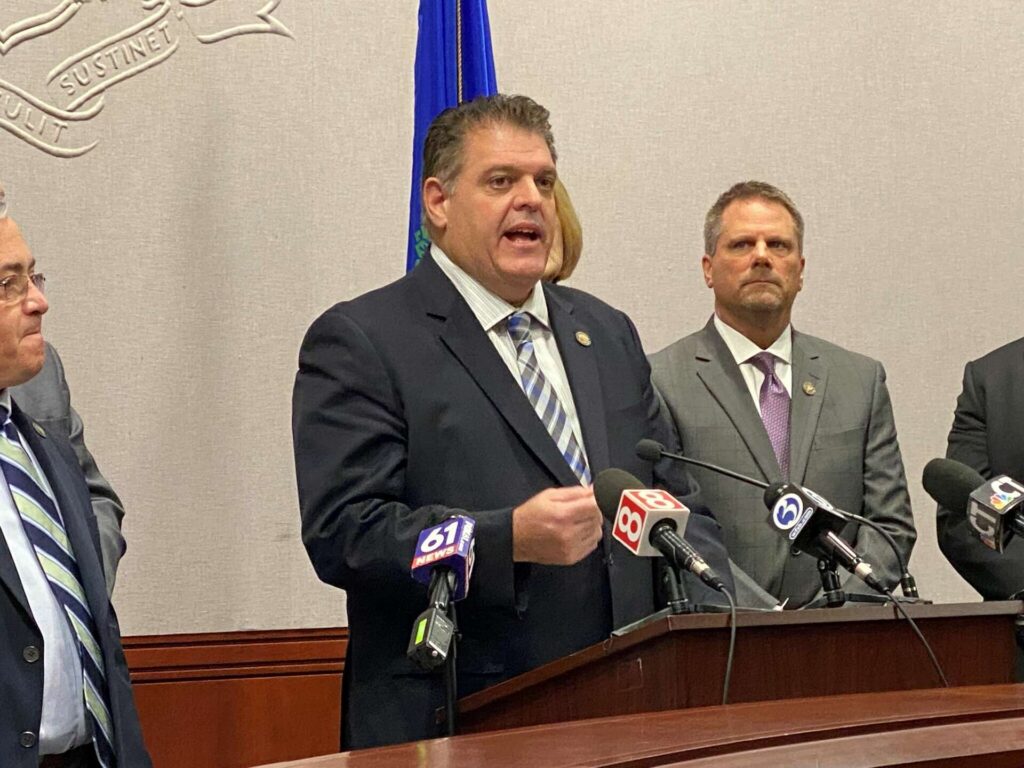HARTFORD — Hemp farmers who suffered economically under state regulations in recent years would be allowed to cultivate marijuana, while smaller cannabis farmers could open brew pub-style sales rooms under legislation that has passed a key legislative committee.
Several hemp and cannabis-related bills were approved by the General Law Committee on Monday, with majority Democrats promising to negotiate further with Republicans on the committee before the bills reach the floor of the House and Senate for debate and vote.
“The fact is that we have so put the hemp industry in complete distress that we have knocked down our potential hemp farmers from only 42 to only nine now, because we have made it so difficult,” said state Sen. Cathy Osten, D-Sprague, a member of the committee. Osten was complaining to committee members that since the legalization of adult-use retails sales in 2021, hemp, with very low levels of the psychoactive chemical compound THC, has been neglected.
“Many of our regulations have been completely against the approval process that the federal government had, taking hemp out of the controlled substances market,” Osten said. “I’m not willing to kill a brand-new industry that’s attempting to survive. We have to do something that allows, under the federal law, the hemp industry to exist.”
State hemp growers have complained that state regulations prevented them from selling products that would be legal under federal regulations. One farmer recently testified that he ended up losing a multi-generation family farm because the hemp industry essentially collapsed.
“In my mind it would more likely lead to more business opportunities for our hemp farmers who do not feel that the current regulations have respected their growing rights,” said state Rep. Roland Lemar, D-New Haven, the committee co-chairman.
Under one of the bills approved by the committee, hemp grown in the state could contain higher levels of THC than the trace amounts currently allowed. “There are some serious concerns in this legislation,” said Sen. Paul Cicarella of North Haven, a ranking Republican on the panel. “A simplistic answer is that it’s just marijuana. That’s a huge concern of mine.”
State Sen. James Maroney, D-Milford, co-chairman of the committee, said the beverages would not be allowed to be sold in Connecticut, but manufacturers here would export them out-of-state.
Lemar admitted that all three related bills that were passed by the committee will be reviewed and redrafted before further action. He said that while Connecticut limits THC-infused beverages to 3 milligrams per container, neighboring states allow up to 5 mg and 10 mg per container. “We’re not changing what’s for sale in Connecticut,” Lemar said.
That bill would allow micro-cultivators — smaller growers, of under 25,000 square feet — to acquire outdoor growing spots, subject to local land-use regulations; and allow small sales areas similar, Lemar said, to brew pubs.
Legislation would make changes to the cannabis equity ownership rules; allows more colors on cannabis packaging; and let cannabis producers to investigate in-house thefts of up to $500 worth of product without first involving the state Department of Consumer Protection, which oversees the industry. There would also be a task force to look into the current laboratory testing standards.
Rep. David Rutigliano of Trumbull, a ranking Republican on the committee, noted that micro cultivators could also partner up with current hemp farmers to grow cannabis.
Lemar said he wasn’t sure whether the hemp farmers would require local approval to grow cannabis and it would be researched further. “I’m still working through a number of the legislative suggestions and challenges and changes that advocates bring to me,” said Lemar, who is in his first term as committee chairman.



